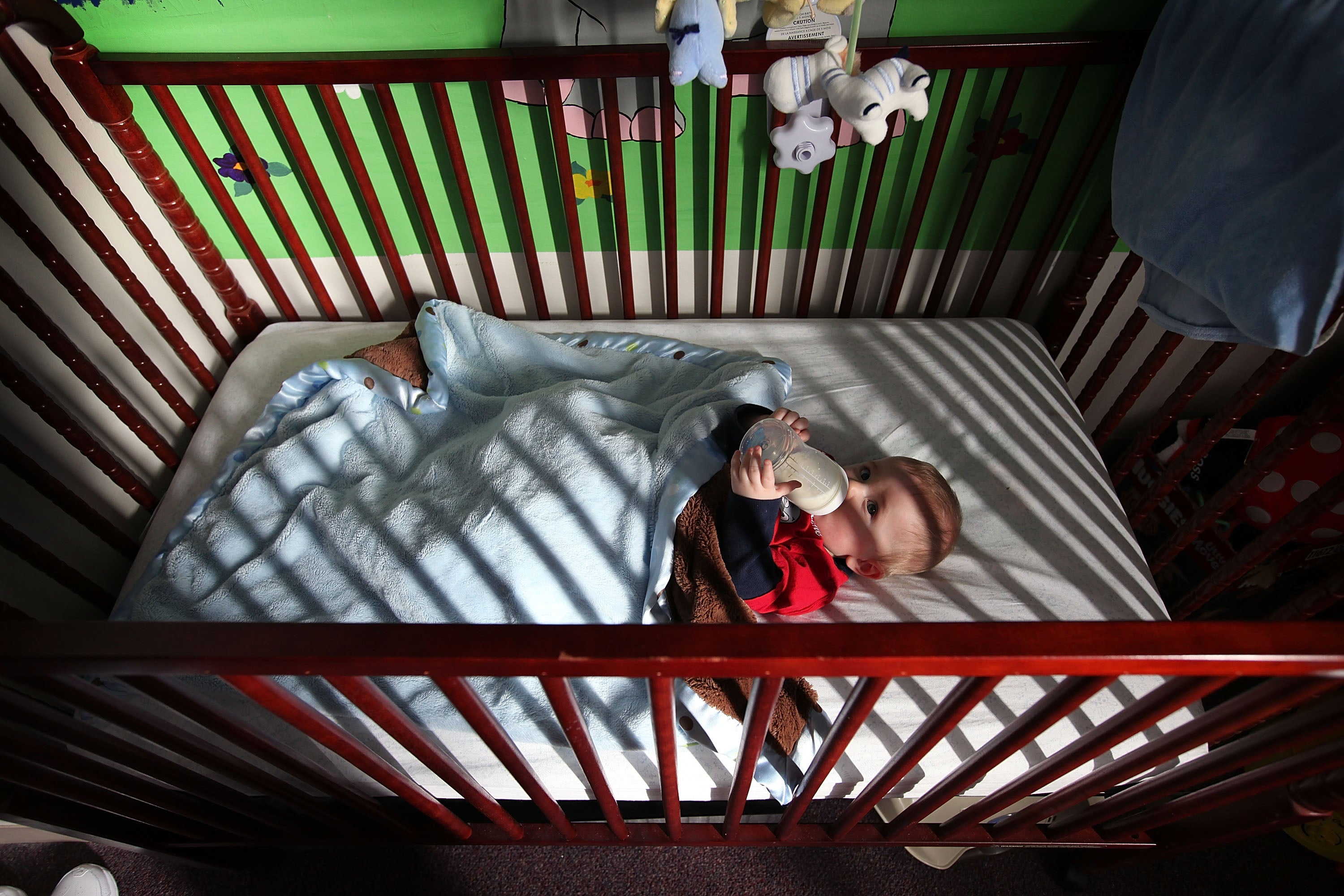Don't pressure parents on co-sleeping - it's the only option for some people
It’s one of those secrets that’s whispered between parents behind hands; something you never, ever, tell a health professional


Apparently my wife and I are fully paid up members of the bad parents club.
You see, both of our children co-slept with their mother, in violation of the current (and ever changing) official advice.
That holds that they should be in a moses basket/cot because anything else puts them at higher risk of SIDS, or cot death. The message was reinforced by a “statistical” study earlier this week. It holds that even if you practice safe co-sleeping - and that means no drink, cigarettes, drugs (even legal ones) that might make you drowsy - you are putting a baby at risk. In reality, an extremely small one, but still a risk, and no responsible parent wants to put their child at risk.
Now, our intention was to follow that official advice, but here’s the thing: It was simply impossible to do so.
When we got our son home, after a difficult birth involving an emergency caesarian, he screamed. And screamed and screamed and screamed. He simply would not sleep on five or six nights out of seven. We tried everything we could think of: putting a reassuring hand on him, calming music, white noise, a sleep specialist (at considerable cost). None of it worked.
In short order we were both exhausted, physically and mentally. I was freelancing at the time, and found it desperately difficult to do anything resembling work. Our local pizza joint was doing brisk business with us because cooking was impossible. In desperation I would occasionally put Luke in the back of a car and go for a late night drive, because, curiously, the car seat was the only place he would sleep. Armed with talk radio and a job lot of diet coke, I’d head up the M11, happily almost bereft of traffic at the time, turn around on the outskirts of Cambridge, and drive back again. Just so my wife could get a couple of hours shut eye.
Here’s the thing: It got to the stage where we were so exhausted, both of us, that if Luke was being held, or cuddled one or the other or both or all three of us would sometimes fall asleep. Even if sitting bolt upright in a chair. Luke would sleep too, because he seemed to need the contact to get him off to the land of nod, at least anywhere other than in his car seat.
Now, what really does increase your risk is if you co-sleep in a chair or on the sofa. That’s what was happening with us, because we were both so exhausted. Co-sleeping on a sofa, or a chair, is risky. By trying to follow the official guidelines, we were perversely increasing the risk, purely because of exhaustion.
So we threw out the advice, and my wife started co-sleeping. She had already given up drink (because of breast feeding) and didn’t smoke. I retired to the sofa, to make it doubly safe. And peace finally reigned at night.
All three of us slept. Subsequently, we found out that rather a lot of parents we know in the same position do the same thing. It’s one of those secrets that’s whispered between parents behind hands; something you never, ever, tell a health professional.
Which means that lots of people don’t get advice on safe co-sleeping if, for them, it’s the only option. And in fact (as it was with us) if it is the safer option because the alternative is frazzled, exhausted parents who then struggle. Badly.
This is what worries me about the latest study. The hectoring, judgmental tone often adopted by healthcare professionals with regard to parents means plenty may not get the advice and support they need if they are considering co-sleeping, bed sharing, call it what you will.
Now Unicef doesn’t disagree with the official advice. Moses basket is best. But here’s what it says to health professionals: “Simplistic messages in relation to where a baby sleeps should be avoided; neither blanket prohibitions nor blanket permissions reflect the current research evidence.”
Unfortunately the latter is frequently what you get. Whether it was referring to us as “mum” or “dad” - we have names you know - to speaking to us as if we were stupid, the approach of some health professionals that we have dealt with leaves an awful lot to be desired. I know we are not alone.
Unicef, it should be said, is critical of the research published earlier this week. You can read its views here.
What parents really need is sensible, pragmatic, advice. Advice that might just say to people in our position (which was at that time desperate) in your case co-sleeping might be worth trying. This is how you should do it safely.
What helped reaffirm our decision was what my aunt, an unusually sensible former health visitor, said: “Look, you should do what works for you. Follow the advice on how to do it safely. And remember, it’s ok. They’re not going to be in with you when they’re 15 after all.”
Damn right. Needless to say we now have two happy, healthy, and scrappy children. They’re great. They both co-slept because our daughter was no different.
Join our commenting forum
Join thought-provoking conversations, follow other Independent readers and see their replies
Comments
Bookmark popover
Removed from bookmarks